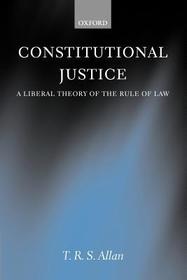
Who's the Bigot?
Learning from Conflicts over Marriage and Civil Rights Law
-
10% KEDVEZMÉNY?
- A kedvezmény csak az 'Értesítés a kedvenc témákról' hírlevelünk címzettjeinek rendeléseire érvényes.
- Kiadói listaár GBP 40.49
-
19 344 Ft (18 422 Ft + 5% áfa)
Az ár azért becsült, mert a rendelés pillanatában nem lehet pontosan tudni, hogy a beérkezéskor milyen lesz a forint árfolyama az adott termék eredeti devizájához képest. Ha a forint romlana, kissé többet, ha javulna, kissé kevesebbet kell majd fizetnie.
- Kedvezmény(ek) 10% (cc. 1 934 Ft off)
- Kedvezményes ár 17 409 Ft (16 580 Ft + 5% áfa)
Iratkozzon fel most és részesüljön kedvezőbb árainkból!
Feliratkozom
19 344 Ft

Beszerezhetőség
Becsült beszerzési idő: A Prosperónál jelenleg nincsen raktáron, de a kiadónál igen. Beszerzés kb. 3-5 hét..
A Prosperónál jelenleg nincsen raktáron.
Why don't you give exact delivery time?
A beszerzés időigényét az eddigi tapasztalatokra alapozva adjuk meg. Azért becsült, mert a terméket külföldről hozzuk be, így a kiadó kiszolgálásának pillanatnyi gyorsaságától is függ. A megadottnál gyorsabb és lassabb szállítás is elképzelhető, de mindent megteszünk, hogy Ön a lehető leghamarabb jusson hozzá a termékhez.
A termék adatai:
- Kiadó OUP USA
- Megjelenés dátuma 2020. április 22.
- ISBN 9780190877200
- Kötéstípus Keménykötés
- Terjedelem304 oldal
- Méret 163x236x30 mm
- Súly 587 g
- Nyelv angol 64
Kategóriák
Rövid leírás:
In Bigotry, Conscience, and Marriage, the eminent legal scholar Linda McClain traces the rhetoric of bigotry and conscience across a set of debates relating to both marriage and antidiscrimination law. In the process, she demonstrates the contested nature of the term 'bigotry' along with its complex ties to the concept of conscience. By teasing out the historical dimensions of the arguments surrounding marriage and antidiscrimination law and demonstrating how the motive-content divide structures such debates, McClain makes a novel contribution to our understanding of the relationship between religious liberty and discrimination in American life.
TöbbHosszú leírás:
Historically, critics of interracial, interfaith, and most recently same-sex marriage have invoked conscience and religious liberty to defend their objections, and often they have been accused of bigotry. Although denouncing and preventing bigotry is a shared political value with a long history, people disagree over who is a bigot and what makes a belief, attitude, or action bigoted. This is evident from the rejoinder that calling out bigotry is intolerant political correctness, even bigotry itself.
In Who's the Bigot?, the eminent legal scholar Linda C. McClain traces the rhetoric of bigotry and conscience across a range of debates relating to marriage and antidiscrimination law. Is "bigotry" simply the term society gives to repudiated beliefs that now are beyond the pale? She argues that the differing views people hold about bigotry reflect competing understandings of what it means to be "on the wrong side of history" and the ways present forms of discrimination resemble or differ from past forms. Furthermore, McClain shows that bigotry has both a backward- and forward-looking dimension. We not only learn the meaning of bigotry by looking to the past, but we also use examples of bigotry, on which there is now consensus, as the basis for making new judgments about what does or does not constitute bigotry and coming to new understandings of both injustice and justice.
By examining charges of bigotry and defenses based on conscience and religious belief in these debates, Who's the Bigot? makes a novel and timely contribution to our understanding of the relationship between religious liberty and discrimination in American life.
Who's the Bigot? illuminates how "the rhetoric of bigotry" enables inaction in the face of systemic and structural discrimination. McClain's powerful insight thus has much to offer in any examination of social inclusion, whether it be based on sexual orientation, gender identity, gender, race, ethnicity or any other ism.
Tartalomjegyzék:
Chapter 1. Who's the Bigot? Puzzles about Bigotry
Chapter 2. From "The Bigot in Our Midst" to "Good People" with Hidden Biases: The Scientific Study of Prejudice
Chapter 3. Interfaith Marriage as a Protest Against Bigotry?: Debates in the 1950s and 1960s
Chapter 4. "You are Waging a Fight of Morality and Conscience:" Competing Theologies of Segregation and Integration 144
Chapter 5. "Our Spirit Is Not Narrow Bigotry": Debating the Civil Rights Act of 1964 and "Legislating Morality"
Chapter 6. Prejudice, Moral Progress, and Not Being "On the Wrong Side of History": The Legacy of Loving for the Right to Marry
Chapter 7. "Sincere Believers," "Bigots," or "Superstitious Fools"?: Motives and Morality in the Supreme Court's Gay Rights Cases
Chapter 8. "This Isn't 1964 Anymore"-Or Is It? Competing Appeals to the Civil Rights Past in Present Controversies over "Religious Liberty versus LGBT Rights"
Chapter 9. Conclusion: Learning Bigotry's Lessons






